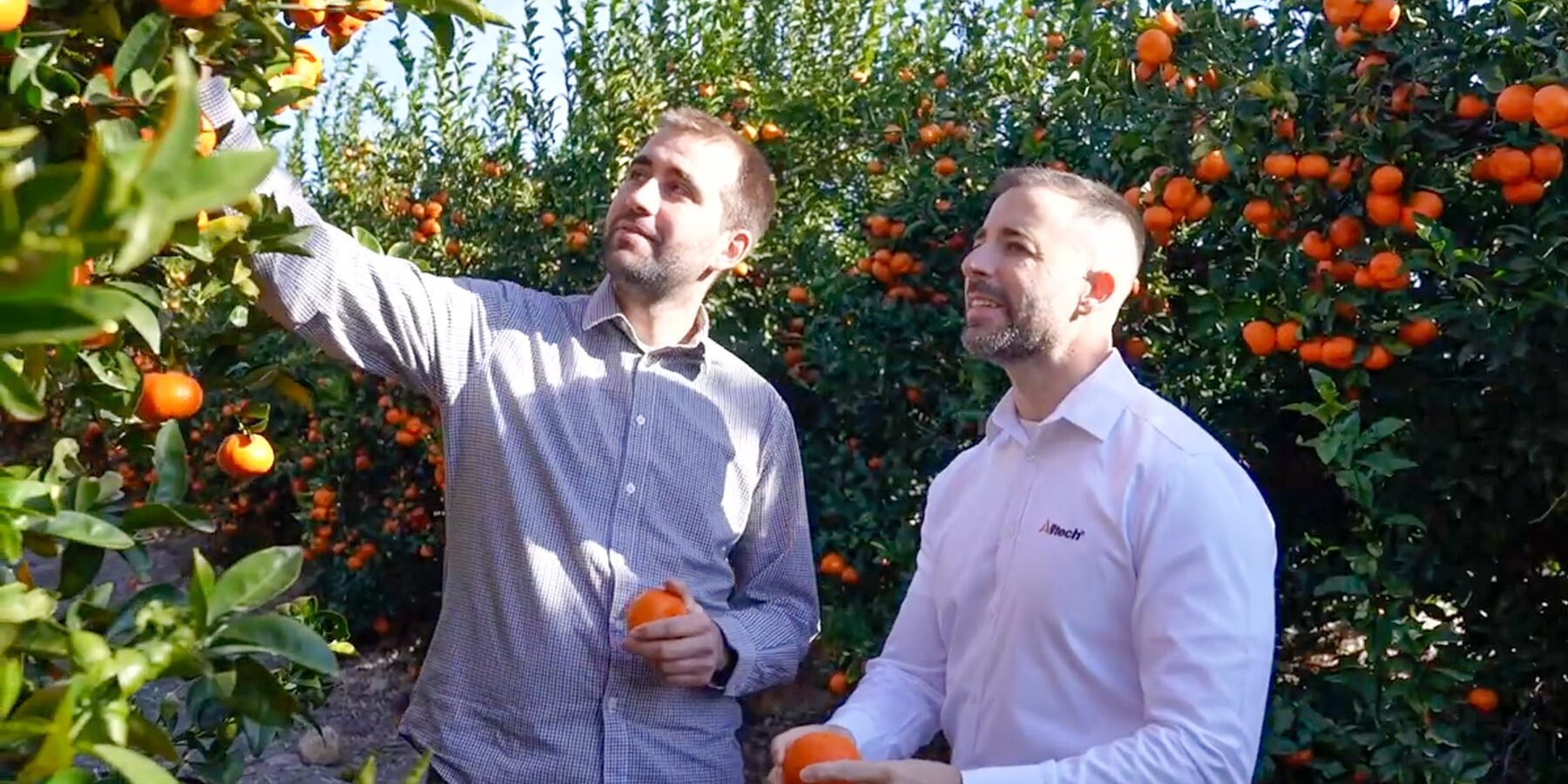Elaia, in collaboration with Alltech, is carrying out an ambitious improvement project at its La Serrana estate, located in Cieza. This 72-hectare plantation of the Nadorcott variety faces significant challenges due to the high salinity of the irrigation water in the area. However, the team is implementing innovative technical management that includes the use of microorganisms and organic matter to counteract these adverse effects on the soil.
The La Serrana farm, recognized as one of the most profitable areas in citrus farming in recent years, is situated in a region with a cold climate, allowing for later harvesting and slower fruit acid degradation. Nevertheless, the poor quality of the irrigation water has led to a progressive loss of soil structure due to sodium accumulation.
In response to this situation, Elaia has modified its fertilization plan, prioritizing the addition of organic matter and the incorporation of growth-promoting microorganisms. Additionally, efforts are underway to develop a suppressive soil that provides plants with greater resilience to abiotic and biotic stresses.
Furthermore, in line with its commitment to sustainability, Elaia is closely collaborating with Alltech on a project to quantify and reduce the carbon footprint of the estate. This project aims to become more sustainable in the short and medium term by implementing measures to mitigate the environmental impact of its operations.
In summary, the alliance between Elaia and Alltech represents a prominent example of how innovation and sustainability can come together to address the challenges of modern agriculture, promoting more responsible and efficient practices for environmental conservation and agricultural production.
Below, we provide a video about the project where David Alemany, Technical Manager of Elaia, provides all the details and the results obtained so far.


